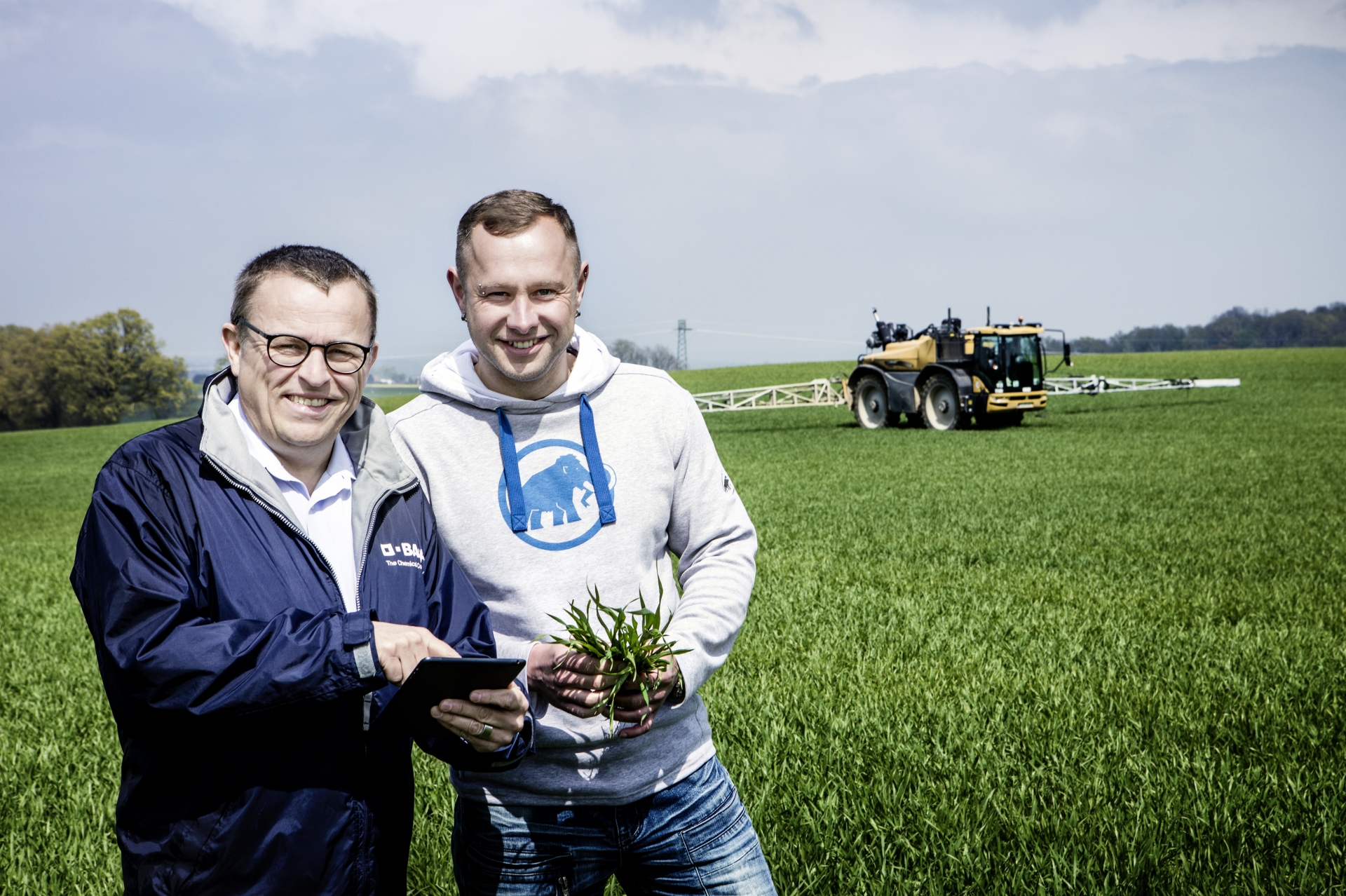BASF crop protection innovations to boost sales to $4.3 billion
 |
| BASF growth driven by continued investment in innovation and strong partnerships |
Product candidates from all indications have reached advanced development phases. Global registration is proceeding key technologies such as the Revysol® fungicide and Inscalis® insecticide.
In 2017, BASF spent €507 million ($620 million) on research and development in the Crop Protection division. Continued investments in innovation are planned to expand the portfolio in and beyond crop protection, such as biological solutions and digital tools and devices.
| With market entry in sight for various developments across our pipeline, we are looking forward to expanding our offer to farmers globally with more comprehensive solutions for improved crop and pest management. |
“With market entry in sight for various developments across our pipeline, we are looking forward to expanding our offer to farmers globally with more comprehensive solutions for improved crop and pest management,” said Markus Heldt, president of BASF’s Crop Protection division.
“The seed and trait research and development capabilities we plan to acquire from Bayer will further strengthen our innovation potential in relevant markets and key crops. They will also provide direct market access for our own trait discovery research,” he said.
BASF is preparing the introduction of its latest fungicide, the Revysol®. The first Isopropanol-azole with an outstanding biological performance shows a new level of disease control. It will be an essential tool for resistance management in many important crops, including cereals, soy, and corn, as well as in fruits and vegetables.
The company also anticipates two new herbicides that are being prepared for regulatory submission in 2018, with two more advancing in early discovery. These first two chemicals have been specifically developed to control resistant grass weeds, one primarily for blackgrass and the other for key grass and broadleaf weeds, to ensure farmers around the globe can continue to count on effective weed management solutions.
In addition, BASF continues to grow its herbicide family with herbicide tolerance and weed resistance management technologies. The new Provisia™ Rice System provides enhanced weed control in rice and is expected to be launched for the 2018 season in the US. Provisia will provide rice farmers with a new tool for the post-emergence control of a broad range of grass weeds.
For improved insect pest control, BASF is advancing its insecticide portfolio with new compounds showing unique modes of action. The most advanced example is Inscalis®.
The new compound, co-developed with Japanese company Meiji Seika Pharma Co., Ltd., will offer farmers an essential tool to protect a wide range of crops from critical piercing and sucking insect pests. Pending regulatory approval, the first Inscalis-based products are expected to be launched in 2018 in numerous countries.
Another new insecticide, co-developed with Japanese company Mitsui Chemical Agro Inc., is Broflanilide, which has a novel mode of action (IRAC Group 30) and will help farmers to control chewing insects, such as beetles and caterpillars, in specialty and field crops.
Broflanilide will also have seed treatment applications. It will also be an important technology to control ants, cockroaches, and flies in the professional pest management markets, too. Broflanilide will be launched in key regions in 2020.
For BASF, the potential of active ingredients goes beyond traditional crop protection. A current example in public health is the first use of the insecticide chlorfenapyr in an innovative new approach to malaria control.
BASF has successfully formulated the active ingredient as the basis for Interceptor® G2, a new generation of its Interceptor® long-lasting insecticide-treated mosquito net, and Sylando® 240SC, an indoor residual spray to coat the walls and ceilings of homes. Interceptor® G2 has been evaluated successfully in 2017 by the WHO Pesticide Evaluation Scheme to ensure it meets international safety standards. Sylando® 240SC is under WHO evaluation.
To meet the increased demand for biologicals, BASF is planning to introduce several innovations in key regions in the next decade, including the Velifer® biological insecticide, which has an extended spectrum of application against target pests and can be used in integrated pest management (IPM) programs in both greenhouse and field settings.
For applications in agriculture, BASF is proceeding with the market introduction of Velondis®, a biological fungicide for seed treatment designed to boost the protection of seedlings and plants from key soil-borne diseases.
Nitrogen stabiliser opportunities also continue to grow, including Limus® urease inhibitor launches planned in Europe and South America.
BASF is also developing digital innovations to support farmers’ agronomic decisions linked to the firm’s core crop protection offering. One example is the Maglis® brand, under which BASF offers different digital tools for farmers and distribution partners, as well as BASF’s own sales force worldwide.
What the stars mean:
★ Poor ★ ★ Promising ★★★ Good ★★★★ Very good ★★★★★ Exceptional
Related Contents
Latest News
More News
- Rising consumption and travel fuel ‘Tet season’ stocks (February 11, 2026 | 11:43)
- Education as strategic capital: why Dwight School Hanoi represents a long-term investment in Vietnam’s future (February 10, 2026 | 19:00)
- Green logistics–the vital link in the global energy transition (February 09, 2026 | 19:35)
- Wages and Lunar New Year bonuses on the rise (February 09, 2026 | 17:47)
- Temporary relief for food imports as businesses urge overhaul of regulations (February 07, 2026 | 09:00)
- Opella and Long Chau join forces to enhance digestive and bone health (February 06, 2026 | 18:00)
- Vietnam-South Africa strategic partnership boosts business links (February 06, 2026 | 13:28)
- Sun PhuQuoc Airways secures AJW Group support for fleet operations (February 06, 2026 | 13:23)
- Pegasus Tech Ventures steps up Vietnam focus (February 05, 2026 | 17:25)
- The generics industry: unlocking new growth drivers (February 04, 2026 | 17:39)

 Tag:
Tag:




















 Mobile Version
Mobile Version